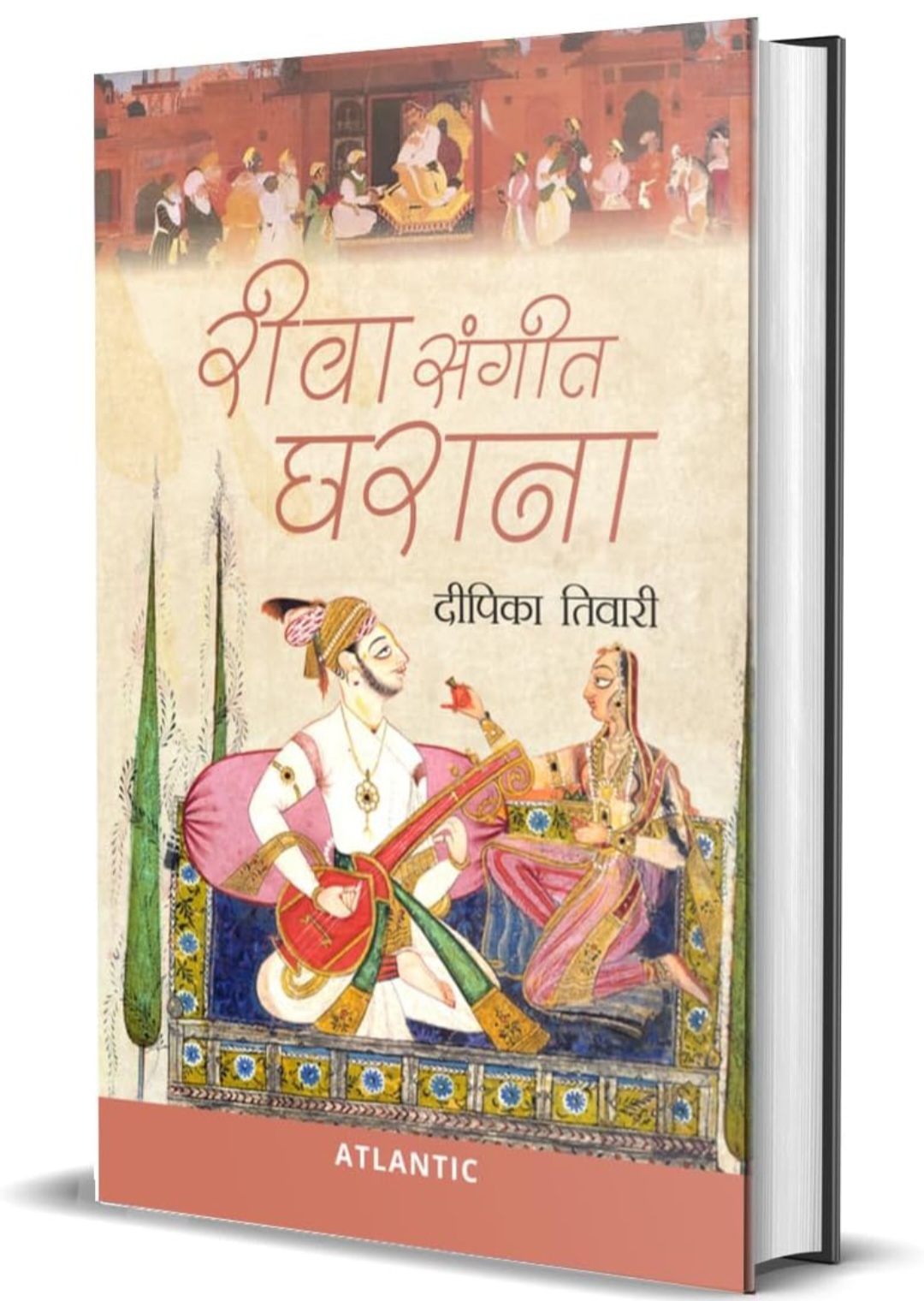Apr 14, 2025
Apr 14, 2025
Rewa Sangeet Gharana by Deepika Tiwari
Atlantic Publisher & Distributors ( P ) Ltd 2024 ISBN ; 9788126939800 , Rs. 595
 The presented book throws light on Rewa Sangeet Gharana, the great music founders of Rewa and their musical style.
The presented book throws light on Rewa Sangeet Gharana, the great music founders of Rewa and their musical style.
Rewa is a city in the state of Madhya Pradesh, India. This city is situated in a part of the Vindhya plateau of Madhya Pradesh. This city has been an ancient stronghold of music. Maihar district is located 60 km away from Rewa. Maihar Gharana was the most prominent gharana of the 20th century. The founder of this gharana was Baba Alauddin Khan. This gharana of Baba Alauddin was named Maihar Senia Gharana.
Music is such a form which is directly connected with every human being.
Naad Brahma is the origin of music. Human speech is a form of Naad. The speed in each breath and exhale expresses the rhythm. Controlling these breaths and exhales is music.
Rewa has been a very special place of musical tradition. Even today the temples of Rewa are authentically present where music was practiced.
It is believed that the gharana in music was started by the music emperor Tansen. The music emperor Tansen practiced music while staying in the court of Maharaj Raja Ramchandra of Rewa.
This gharana was very famous in the first half of the 18th century. As time passed, the descendants and disciples of Tansen started going abroad and started their own separate lineages, then the Rewa gharana slowly started disappearing.
Through this book, an attempt has been made to collect how the Rewa gharana came into being and how gharanas were born in the whole country through this gharana. It has been described how the education system here was.
The musical tradition in Rewa continued through royal patronage till the first part of the 19th century. The Ustads of this place went to other places and developed the education of music. It developed in the form of string playing, Dhrupad singing and Khayal singing in the name of Seniya Gharana.
During the time of Maharaja Vishwanath Singh of Rewa, Bade Mohammad Khan left Gwalior and came to Rewa. The children of Bade Mohammad Khan made full use of the musical environment of Rewa and went to various places in India and helped in expanding the style of music education.
When the music emperor Tansen was only Ram Tanu Pandey, when he had not received the title of Tansen, at that time, with the grace of Mohammad Gaus, he got the knowledge of Persian music of Indraprastha sect and Iranian music. The tradition of music which Tansen got to know in Rewa included Todi, Deepak, Malhar, Kangra, and Kaunsh ragas. The fame of Tansen in Rewa state started spreading beyond the state, as a result of which this singer-artist of Rewa was caught by Muslim invaders many times and after listening to his song, he was also released. But when the information reached Akbar, the Rewa Maharaj was forced to send his favorite singer to Akbar's court. Tansen's visit to Akbar's court became a royal custom, in this situation Raja Ramchandra had to send Tansen to Akbar, even though he did not want to. Tansen spent 60 years of his life in Rewa and Tansen also composed many Dhrupad songs in the name of Raja Ramchandra Baghela.
When Tansen reached Akbari court, he won everyone's heart with his songs and Akbar gave Tansen the title of Music Emperor. Tansen also became one of the nine gems of Akbar.
The Dhrupad style of Rewa was deeply influenced by Shaivism. The style of Dhrupad Sanskar that was created had spiritual and religious knowledge of the Sangeet Acharya. This style was mainly influenced by the music of temples.
To systematically study the education system of the Rewa Gharana, a discussion of these three genres, Dhrupad, Tantri and Khayal, has been prescribed. Here music is spread in two aspects, one is Sadhna Sangeet and the other is Sabha Sangeet.
By using Setu Shastra in the teaching system of Khayal, the functional style of Dhrupad was developed in accordance with Persian and Urdu.
While studying the gharanas, we came to know about one such gharana about which no information is available in the current modern books. Gwalior, Agra, Delhi, Patiala, Jaipur were mentioned but the history of another gharana is described in this book whose name is Rewa Seniya Gharana.
In the eternal tradition of music, the practice of Shaivism of Rewa has been prescribed. There was no caste or religious distinction; the practice of Naad Brahma as per ability was determined as the philosophy of the musician and the science of proving Yoga practice through Tantra side music was determined.
This part of the Vindhya region was a follower of Shaivism since the Puranic period, but later the Vaishnava tradition of Saakar Brahma came into vogue here. On the basis of the Sanskrit remains here, it is known that Dhyan Yoga, Naad Tradition, Upveda of Samveda were organized in two parts here.
15-Jun-2024
More by : Deepika Tiwari